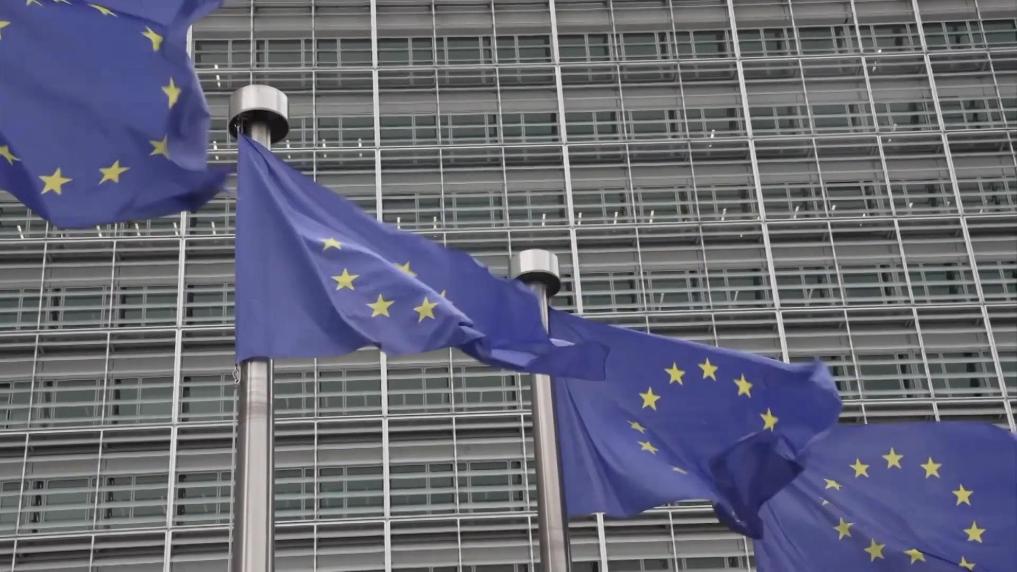Diversification or decline: Europe's wake-up call amid U.S. tariff hikes, currency pressures
Source: Xinhua
Editor: huaxia
2025-07-23 20:41:48
* A 30 percent U.S. tariff on imports from the EU is set to take effect on Aug. 1, triggering alarm across the European industries.
* Last week, Italy's Association for the Development of Industry in the Mezzogiorno warned that the U.S. tariffs might lead to a 0.5-percent reduction in Italy's GDP in 2026 and the potential loss of up to 150,000 jobs, including some 13,000 in the country's southern regions.
* In addition to the tariffs, the recent sharp appreciation of the euro has also triggered growing concern among policymakers and economists, with some warning that the strong currency delivers a "double blow" to Europe's export-heavy economies.
* Recent protectionist moves by the United States may unintentionally accelerate Europe's drive to diversify its trade partnerships and help foster a more balanced, resilient, and inclusive global trade architecture, said German economist Hermann Simon.
BRUSSELS/FRANKFURT, July 23 (Xinhua) -- Less than 10 days before the newly proposed U.S. tariffs on imports from the European Union (EU) take effect, the clock is ticking, sounding alarms across the European industries, some of which are facing existential threats.
The last-ditch efforts made by the EU to secure an agreement to avert the new sweeping U.S. tariffs have failed so far. EU Trade Commissioner Maros Sefcovic has warned that the levy of a 30-percent tariff "prohibits the trade."
From Bavarian steel mills to Croatian jam producers, the new tariffs spell disaster for European businesses over-reliant on U.S. markets, underscoring an urgent truth: Europe must diversify now or face permanent decline.
EXPORT STRAIN
Neb Chupin, CEO of Croatia's Hermes International, fears that his fig jam business -- a U.S. market success since 2005 -- may not survive the looming tariffs.
In the good old days, the firm shipped as many as 150 containers of fig jam to the United States annually, which generated around 10 million U.S. dollars in sales revenue.
In the case of a 10-percent levy on EU products by the U.S. administration, the fig jam producer will have to pay an additional 1 million dollars annually.
As the tariffs find their way into the price tags of Chupin's fig jam in the United States, sales declined and the firm had to cut jobs.
If Washington follows through on its 30-percent tariff threats, Chupin told Xinhua that he couldn't bear to imagine the consequences.
Chupin's trepidation reverberates across Italy's 6,000 vulnerable small and medium enterprises, particularly in premium sectors like beverages and pharmaceuticals, where 11 billion euros (12.7 billion U.S. dollars) in exports hang in the balance.
Last week, Italy's Association for the Development of Industry in the Mezzogiorno warned that the U.S. tariffs might lead to a 0.5-percent reduction in Italy's GDP in 2026 and the potential loss of up to 150,000 jobs, including some 13,000 in the country's southern regions.
The Institute for International Political Studies (ISPI), an Italian think tank, said that U.S. tariffs would also weigh on economies such as Germany and France, costing the two countries 0.5 percent and 0.25 percent of their economic outputs.
According to the new U.S. tariff policies, European steel products sold in the United States will be levied an additional 50-percent tariff, which, according to experts from the Association of Bavarian Business in Germany, will make sales of German steel products in the United States unrealistic.
Kerstin Maria Rippel, managing director of the German Steel Federation, warned that the influx of steel products from third countries to the European markets would compound the predicament of European steel producers.
EURO SURGE RISK
The recent sharp appreciation of the euro has triggered growing concern among policymakers and economists, with some warning that the strong currency delivers a "double blow" to Europe's export-heavy economies.
The euro rose to a four-year high of 1.181 U.S. dollars at the beginning of this month, according to the data of reference rates published by the European Central Bank. The euro-U.S. dollar pair has soared by 14 percent since the beginning of this year.
Henrik Mueller, professor of Economic Journalism at the Technical University of Dortmund, explained that a stronger euro makes European goods and services more expensive relative to foreign competitors, thereby hurting exports.
For a region heavily reliant on external demand, this is "particularly ill-timed," he said.
Italian Minister of Economy and Finance Giancarlo Giorgetti stressed that a weak U.S. dollar effectively acts as an "implicit" tariff, making U.S. goods cheaper and imported goods more expensive, thus distorting international trade flows.
Mueller added that the eurozone, especially Germany, is being hit simultaneously by rising trade barriers and currency appreciation. "This double hammer, tariffs plus revaluation, will hurt," he warned.
"Any tariff level on top of that is out of control," since the cheaper dollar represents the "highest tariff that (Europe) already faces... making us lame from the start," Emanuele Orsini, president of Italy's largest employers' association Confindustria, said at a conference in Rome. In his view, the only acceptable tariff on EU exports to the United States would be zero, as the bloc is already facing a detrimental exchange rate.
In recent days, several members of the European Central Bank (ECB)'s Governing Council have voiced concern over the strength of the euro. ECB Vice President Luis de Guindos recently stated that an exchange rate above 1.20 U.S. dollars per Euro could pose risks to Europe's economic outlook.
Most concerning is the speed at which the exchange rate reaches this level. Thu Lan Nguyen, a foreign exchange expert at Commerzbank, noted in an analysis that it is primarily rapid and pronounced exchange rate movements that can undermine companies' planning certainty and, as a result, have real economic implications.
DIVERSIFICATION IMPERATIVE
While the erratic U.S. trade policies wreak havoc on global trade, supply chain and the European economy, European policymakers and manufacturers are set to diversify their trade and look to expand their businesses in other markets.
Unilateral trade measures from Washington are undermining the foundations of the global multilateral system and dealing a direct blow to the German economy, said Bernd Einmeier, president of the German-Chinese Association for Economy, Education, and Culture. "This situation demands a strategic shift: market diversification can no longer remain a policy slogan, it has become an economic necessity. Sustainable international commerce must be grounded in trust, rules, and reciprocity."
As a matter of fact, the economic security has long been a concern for the EU, which is in active pursuit of diverse trading partners in a bid to reduce over-reliance.
The EU and the Southern Common Market, known as Mercosur including Brazil, Argentina, Uruguay and Paraguay, signed in December last year a free trade and cooperation agreement after 25 years of negotiations.
For Hermann Simon, a renowned German economist known as the father of the "Hidden Champions" theory, the untapped potential of trade partnerships with developing regions remains a key focus for Germany and Europe.
He highlighted Africa as a particularly striking example: Germany currently exports more to Sweden, a country with just 10 million people, than to the entire African continent, home to over 1.2 billion.
This stark imbalance, he argued, underscores not only the need for Germany and Europe to expand their commercial footprint in African markets, but also to support Africa's ability to increase its own exports to Europe.
Strengthening such reciprocal trade relationships, Hermann said, represents both a significant economic opportunity and a shared global responsibility.
In his view, recent protectionist moves by the United States may unintentionally accelerate Europe's drive to diversify its trade partnerships and help foster a more balanced, resilient, and inclusive global trade architecture.
(Video reporter: Liu Yuxuan, Diao Ze, Leonardo Lombroso, Li Xuejun, Relja, Dusek, Yin Xiaosheng, Jasmin Brutus; video editors: Hong Liang, Zhu Cong, Zheng Qingbin, Wang Han)■












Comments